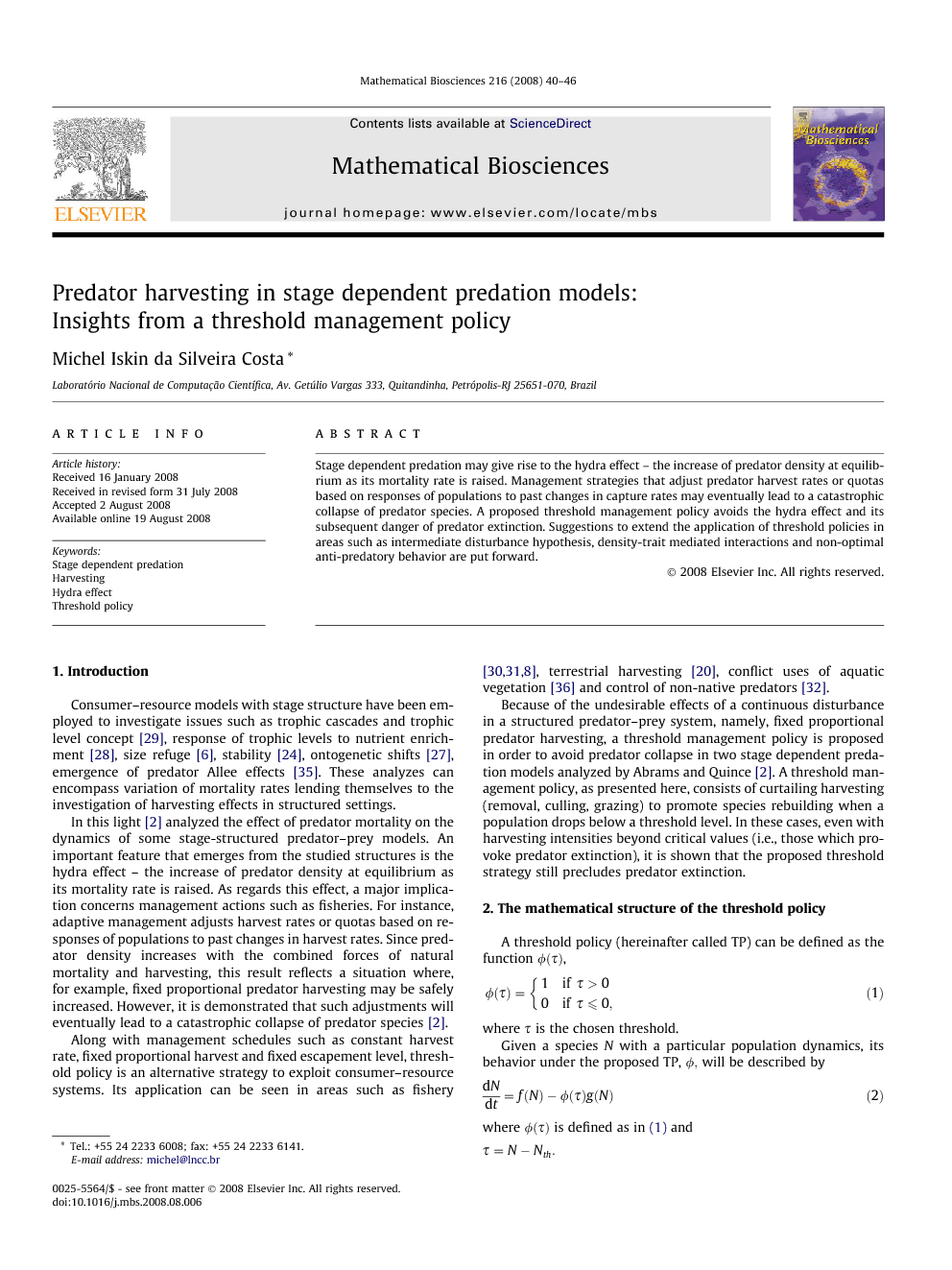Stage dependent predation may give rise to the hydra effect – the increase of predator density at equilibrium as its mortality rate is raised. Management strategies that adjust predator harvest rates or quotas based on responses of populations to past changes in capture rates may eventually lead to a catastrophic collapse of predator species. A proposed threshold management policy avoids the hydra effect and its subsequent danger of predator extinction. Suggestions to extend the application of threshold policies in areas such as intermediate disturbance hypothesis, density-trait mediated interactions and non-optimal anti-predatory behavior are put forward.
Consumer–resource models with stage structure have been employed to investigate issues such as trophic cascades and trophic level concept [29], response of trophic levels to nutrient enrichment [28], size refuge [6], stability [24], ontogenetic shifts [27], emergence of predator Allee effects [35]. These analyzes can encompass variation of mortality rates lending themselves to the investigation of harvesting effects in structured settings.
In this light [2] analyzed the effect of predator mortality on the dynamics of some stage-structured predator–prey models. An important feature that emerges from the studied structures is the hydra effect – the increase of predator density at equilibrium as its mortality rate is raised. As regards this effect, a major implication concerns management actions such as fisheries. For instance, adaptive management adjusts harvest rates or quotas based on responses of populations to past changes in harvest rates. Since predator density increases with the combined forces of natural mortality and harvesting, this result reflects a situation where, for example, fixed proportional predator harvesting may be safely increased. However, it is demonstrated that such adjustments will eventually lead to a catastrophic collapse of predator species [2].
Along with management schedules such as constant harvest rate, fixed proportional harvest and fixed escapement level, threshold policy is an alternative strategy to exploit consumer–resource systems. Its application can be seen in areas such as fishery [30], [31] and [8], terrestrial harvesting [20], conflict uses of aquatic vegetation [36] and control of non-native predators [32].
Because of the undesirable effects of a continuous disturbance in a structured predator–prey system, namely, fixed proportional predator harvesting, a threshold management policy is proposed in order to avoid predator collapse in two stage dependent predation models analyzed by Abrams and Quince [2]. A threshold management policy, as presented here, consists of curtailing harvesting (removal, culling, grazing) to promote species rebuilding when a population drops below a threshold level. In these cases, even with harvesting intensities beyond critical values (i.e., those which provoke predator extinction), it is shown that the proposed threshold strategy still precludes predator extinction.


